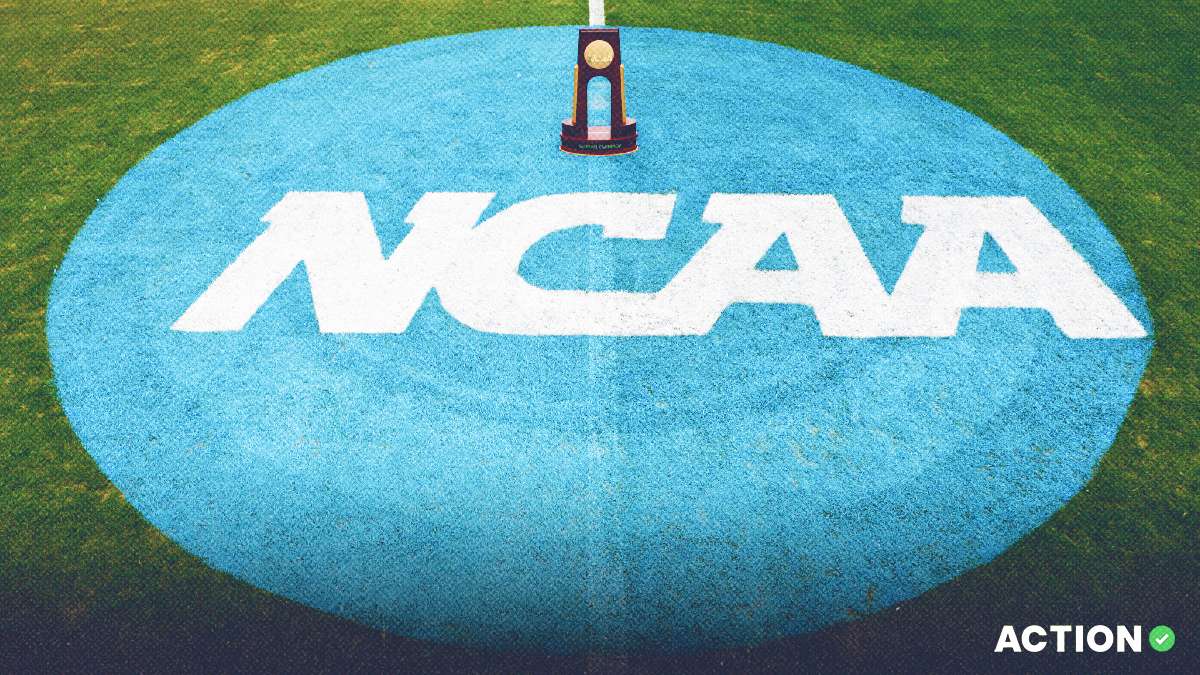NCAA, Power 5 Conferences Reach Agreement to Allow Schools to Pay Players Directly
C. Morgan Engel/NCAA Photos via Getty Images. Pictured: The NCAA logo.
The NCAA and Power 5 conferences have reached an historic agreement that will allow schools to pay players directly.
The organization and power conferences' multibillion-dollar settlement will sort out three federal antitrust cases and allow for a first-of-its-kind revenue sharing plan in college sports.
The NCAA will pay out more than $2.7 billion over 10 years to current athletes and past athletes dating back to 2016, according to a report from ESPN's Dan Murphy and Pete Thamel.
"The five autonomy conferences and the NCAA agreeing to settlement terms is an important step in the continuing reform of college sports that will provide benefits to student-athletes and provide clarity in college athletics across all divisions for years to come," NCAA president Charlier Baker and the conference commissioners said in a joint statement. "This settlement is also a road map for college sports leaders and Congress to ensure this uniquely American institution can continue to provide unmatched opportunity for millions of students.
"All of Division I made today's progress possible, and we all have work to do to implement the terms of the agreement as the legal process continues. We look forward to working with our various student-athlete leadership groups to write the next chapter of college sports."
Schools, including Notre Dame as part of the ACC, have also agreed to a revenue-sharing plan that will allow them to pay student-athletes up to $20 million per year, according to ESPN's report. The revenue sharing would likely begin in 2025.
The agreement still needs to be ratified by the judge presiding over all three cases — House v. NCAA, Hubbard v. NCAA and Carter v. NCAA — which could take months.
While this agreement marks an unprecedented day in the history of college athletics, the terms of the agreement will not allow athletes to sue the NCAA in future antitrust cases and will force them to drop their current complaints.
The agreement also doesn't make athletes employees of their universities, meaning the fight for collective bargaining will likely continue. If any of those efforts catch on, that could impact the aforementioned revenue-sharing agreement.
“The settlement, though undesirable in many respects and promising only temporary stability, is necessary to avoid what would be the bankruptcy of college athletics," Notre Dame president Rev. John I. Jenkins said in a statement. “To save the great American institution of college sports, Congress must pass legislation that will preempt the current patchwork of state laws; establish that our athletes are not employees, but students seeking college degrees; and provide protection from further anti-trust lawsuits that will allow colleges to make and enforce rules that will protect our student-athletes and help ensure competitive equity among our teams.”
Athletes will still be allowed to profit off their name, image and likeness. The NIL era began in 2021 after years of issues and concerns surrounding the topic, including the O’Bannon v. NCAA case.
Now, a new era of college athletics seems to be taking off with schools paying athletes directly.
How would you rate this article?


